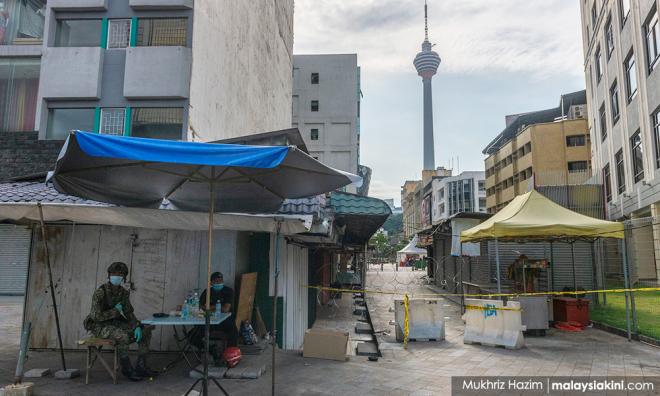
CORONAVIRUS | Malaysia may not end up with the worst-case scenario for the property market post-Covid-19, given its much healthier state of financial fundamentals today.
PropertyGuru Malaysia country manager, Sheldon Fernandez, said measures were already in place to manage the industry's decline even before the Covid-19 outbreak.
"Based on previous crisis years, the upper limit of this decline would be about 10 percent, as overall house price growth dropped by 9.4 percent during the 1998 Asian financial crisis and its accompanying Nipah virus outbreak.
"This was, however, a worst-case scenario as the 1998 crisis was financial in nature," he told Bernama.
Fernandez said the impacts on prices for individual property types will vary.
For example, he said the 1998 Asian financial crisis saw detached home prices declining by 13.6 percent, while terrace houses and high-rise properties were relatively resilient, with declines of just -4.8 percent and -6.2 percent. respectively.
Covid-19, MCO impacts and buying sentiment
Fernandez said Covid-19 and the movement control order (MCO) have undoubtedly had a downward impact on buying sentiment, which was already decreasing before these events.
"This was seen in our PropertyGuru Malaysia Consumer Sentiment Study for the first half (H1) of 2020, which saw Malaysia’s Property Sentiment Index dropping two points from 44 points in H1 2019 to 42 points at the start of this year.
"People are focusing on just surviving, and bread and butter issues are the order of the day. As such, many property decisions will be delayed, leading to pent-up demand," he said.
On whether speculation would continue post-MCO, he said while its mechanisms are still under study, the property market has repeatedly demonstrated a tendency to “bounce back” following periods of crisis and short-term decline.
Aside from pent-up demand re-expressing itself once market conditions improve, this tendency may also be due to investors restructuring their portfolios to manage risks and prioritise undervalued properties.
"With market recovery at the earliest foreseen in H1 2021, along with Covid-19/ MCO impacts on rental rates and moderating growth as the economy matures, this would favour long-term investment, as opposed to short-term speculators or flippers," he said.
Reducing residential overhang units
Fernandez also opined that previous requests made by the Real Estate & Housing Developers' Association Malaysia (Rehda) to the government could help address residential overhang units in the country.
These include bringing back the Home Ownership Campaign, reviewing real property gains tax (RPGT), Standardising threshold prices for international purchasers in all states, and reviewing the loan-to-value (LTV) ratio cap for third home purchases.
"The review of loan-to-value ratio caps, in particular, may be effective, as traffic data on the PropertyGuru Malaysia portal showed the most queries for apartments, high-rises and condominiums, with price ranges from RM900,000 to RM2 million in March and April to date.
"This indicates that demand for these segments remains high, but may remain unexpressed in transaction data due to policy or financing barriers. Addressing these would go a step towards facilitating the absorption of overhang units by the market," said Fernandez.
Financing in property segment
For loan applications, Fernandez said mortgage applications in the United States, for example, have dropped by as much as 30 percent as they move along their Covid-19 infection curve.
In Malaysia, this would be under the purview of Bank Negara and given that loan applications require property valuation, this is a challenging task under the present circumstances, as the priority now is rapidly disbursing of financing facilities to the sectors, businesses and households hardest hit by the pandemic.
"We foresee loan applications growing during the recovery phase as pent-up demand reasserts itself.
"In China, this has seen sales tripled in the tail-end of their Covid-19 infection curve, implying even higher loan application growth. It remains to be seen whether domestic numbers will match or exceed China’s example," he added. - Bernama


No comments:
Post a Comment
Note: Only a member of this blog may post a comment.